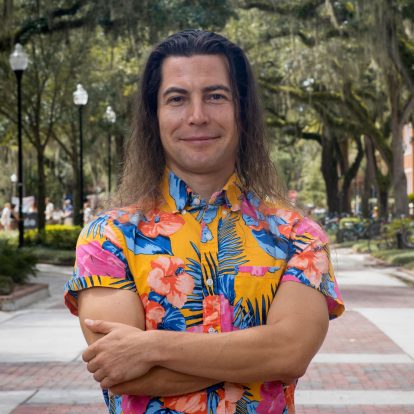Associate Professor Anton Matytsin (Ph.D. University of Pennsylvania, 2013) is an intellectual and cultural historian of early modern Europe, focusing in particular on seventeenth- and eighteenth-century France. Before joining the University of Florida in 2019, he was Assistant Professor of History at Kenyon College (2015-2019), Fellow at the National Humanities Center (2018-2019) and Andrew W. Mellon Fellow in the Humanities at Stanford University (2013-2015). Dr. Matytsin is the author of The Specter of Skepticism in the Age of Enlightenment (Johns Hopkins University Press, 2016), which explains how the revival and spread of philosophical skepticism led to the making of a new conception of rationality—one that privileged probability and practicable reason over speculative reason. He is co-editor, with Dan Edelstein, of Let There Be Enlightenment: The Religious and Mystical Sources of Rationality (Johns Hopkins University Press, 2018), which explores the complex interplay between reason and religion in different national and religious contexts of seventeenth- and eighteenth-century learned culture. He is also co-editor, with Jeffrey D. Burson, of The Age of Skepticism: Doubt and Certainty in the Age of Reason (Voltaire Foundation and Liverpool University Press, 2019), which questions the portrayal of the Enlightenment as a triumphant “Age of Reason” and highlights the centrality of the concern with skepticism and certainty in debates about philosophy, religion, and politics.
Dr. Matytsin’s current book project, provisionally titled A History of History: The Académie des inscriptions and the Remaking of the Past, examines one of the most intriguing learned societies of Old Regime France. The Académie des inscriptions et belles-lettres—a royal academy founded as part of King Louis XIV’s image-making campaign—played a crucial role in shaping the discipline of history and in the emergence of Enlightenment cosmopolitanism. The book centers on the paradox of how historical research that was originally meant to serve the project of state building ended up subverting both the political and religious fabric of the Old Regime.
Dr. Matytsin teaches courses on early modern European history and intellectual history, including Early Modern Europe, 1500-1700, Eighteenth-Century Europe, The Scientific Revolution, The French Revolution, and Intellectual History of Europe, Renaissance to Modern.
